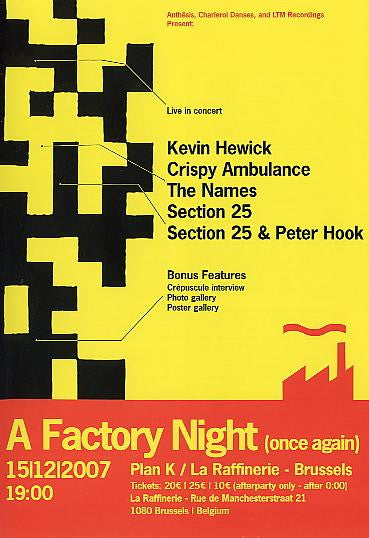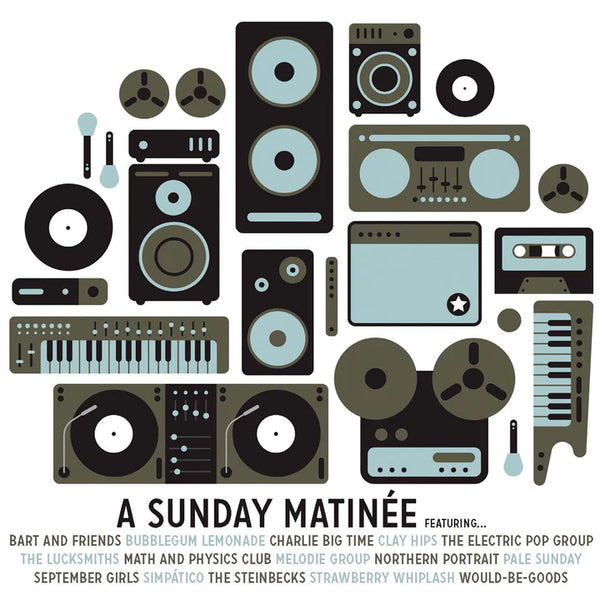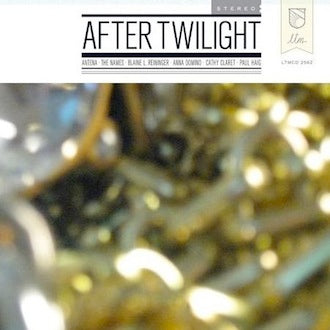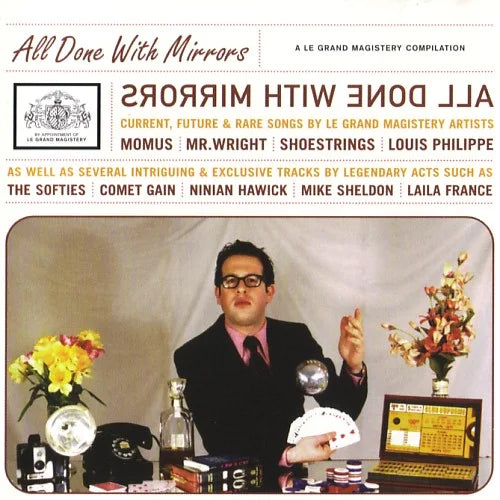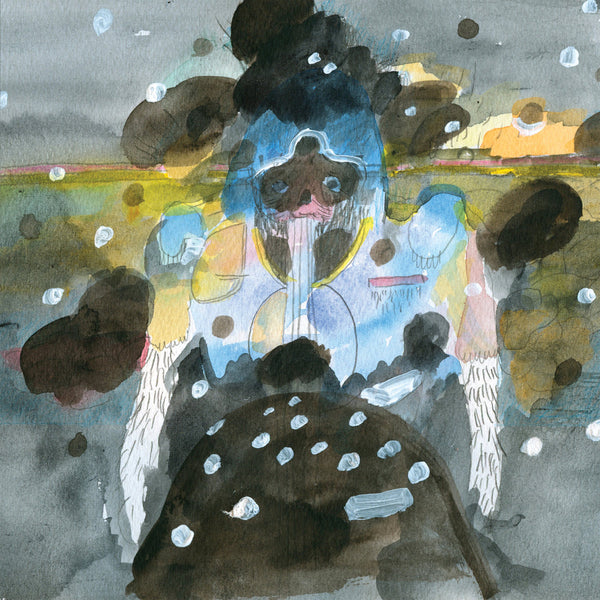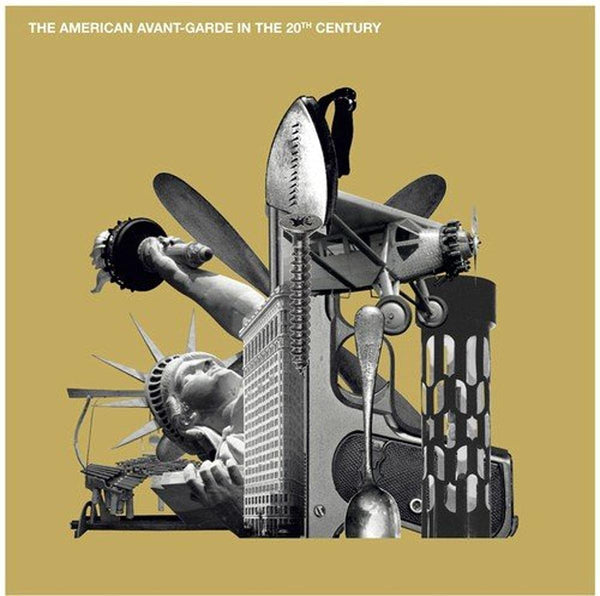An evocative double-disc set, Victory In Europe features 150 minutes of rare audio material recorded between 1944 and 1945. The 51 tracks cover the campaign in Western Europe, beginning with the ill-fated airborne assault at Arnhem in September 1944 and ending with the dramatic fall of Berlin and the surrender of Germany in May 1945.
Specific events include Arnhem, the bitter fight for Walcheren island, the devastation of Cologne and other cities, the first Rhine crossing at Remagen, destruction of V-2 launch sites, the Rhine crossing in March 1945, the liberation of Belsen, the first meeting of US and Soviet troops on the Elbe, the deaths of Hitler and Himmler, and fall of Berlin, and the final German surrender.
All materials are authentic wartime recordings carefully digitally remastered. The CD booklet includes archive images and historical notes by James Hayward.
Tracklist:
Disc One:
1. NEWS BULLETIN: DUTCH FRONTIER CROSSED
2. NEWS BULLETIN: BRUSSELS LIBERATED
3. NEWS BULLETIN: LUXEMBURG LIBERATED
4. MONTGOMERY: MESSAGE TO TROOPS 17.9.1944
5. NEWS BULLETIN: OPERATION MARKET GARDEN
6. ARNHEM: PARATROOPS DROPPING
7. ARNHEM: DAKOTA CREW
8. ARNHEM: SUPPLY DROP ON THIRD DAY
9. ARNHEM: STANLEY MAXTED
10. ARNHEM: GENERAL ROY URQUHART
11. WALCHEREN: CANADIANS CLEAN UP
12. BRITISH TANKS IN GERMANY
13. US TANK DESTROYER CREW
14. MONTGOMERY: CHRISTMAS MESSAGE 1944
15. ARDENNES: BASTOGNE DEFENCE
16. V-2: OPERATION BIG BEN (SPITFIRES)
17. ARMOURED WARFARE: COLMAR POCKET
18. CLEVE: ROYAL SCOTS FUSILIERS
19. DEVASTATION IN GERMANY: REICHSWALD
20. COLOGNE IN RUINS
21. NEWSFLASH: FIRST RHINE CROSSING
22. REMAGEN: FIRST RHINE CROSSING
Disc Two:
1. RHINE CROSSING: AIRBORNE ASSAULT
2. RHINE CROSSING: US PARATROOPERS
3. RHINE CROSSING: TUG & GLIDER
4. RHINE CROSSING: GLIDER LANDING
5. RHINE CROSSING: IN A BUFFALO
6. GORDON HIGHLANDERS CLEAR REES
7. CONDITIONS IN HOLLAND
8. IN A GERMAN COUNTRY HOTEL
9. DEATH OF PRESIDENT ROOSEVELT
10. TREATMENT OF SLAVE WORKERS
11. RICHARD DIMBLEBY AT BELSEN
12. RAF MEET SOVIET AIRCRAFT
13. LEIPZIG: SUICIDES IN RATHAUS
14. TORGAU: US-SOVIET LINK UP
15. RUSSIAN LINK UP
16. TALLBOYS ON BERCHTESGADEN
17. NEWS: BERLIN ENCIRCLED
18. BREMEN: DEVASTATION OF CITY
19. NEWS: REICHSTAG FALLS
20. GERMAN NEWS: HITLER IS DEAD
21. BBC NEWSFLASH: HITLER IS DEAD
22. DEATH OF HITLER: PRIVATE TOWNSEND
23. DEATH OF HITLER: A GERMAN SCHOOLMASTER
24. NEWS: FALL OF BERLIN
25. MASS SURRENDER OF GERMAN TROOPS
26. VICTORY ADDRESS: MONTGOMERY
27. VICTORY ADDRESS: GENERAL OMAR BRADLEY
28. DEATH OF HIMMLER
29. FLENSBURG: GOVERNMENT ARRESTED
Liner notes by James Hayward:
Disc One:
1. NEWS BULLETIN: DUTCH FRONTIER CROSSED (0.46)
Broadcast 4 September 1944. Programme interrupted by Freddy Grisewood, to announce that Allied troops have crossed the Dutch frontier for the first time. In fact the failure of Operation Market Garden (below) meant that Holland was one of the last European nations to be liberated.
2. NEWS BULLETIN: BRUSSELS LIBERATED (0.27)
Broadcast 4 September 1944. Home Service news bulletin read by John Snagge, announcing that Allied troops have captured the Belgian capitol city. Most of Belgium was rapidly liberated at the beginning of September, at a speed which precluded the kind of prolonged power vacuum seen elsewhere, and the excesses were mostly avoided.
3. NEWS BULLETIN: LUXEMBURG LIBERATED (1.40)
Broadcast at midnight on 11 September 1944. Extract from Home Service news bulletin read by Stuart Hibberd, giving the news headlines and announcing the liberation of Luxemburg by American forces. The Grand Duchy had been occupied on 10 May 1940, after which all citizens were declared German nationals. US troops first entered Luxemburg on 10 September, although the small country had to endure the Ardennes offensive before final liberation in February 1945.
4. MONTGOMERY: MESSAGE TO TROOPS 17.9.1944 (1.24)
Broadcast 17 September 1944. On 1 September 1944 Eisenhower had taken over direct military command of the Allied Army Groups, although Montgomery was promoted to the rank of Field Marshal. Here he speaks as commander of 21st Army Group, and describes events since 17 August, including the removal of German troops from France and Belgium, and heavy enemy losses. His ending - 'Forward into Germany' - diverted attention away from the Allied airborne landings in Holland, Operation Market Garden, which began around midday.
5. NEWS BULLETIN: OPERATION MARKET GARDEN (2.10)
Broadcast 17 September 1944. News bulletin read by John Snagge, broadcast at 18.00. The bulletin also includes a message from Eisenhower's headquarters, asking the Dutch people to assist the Allies and refrain from sabotage. Operation Market Garden was conceived in haste by Montgomery and planned in just a week. Three Allied airborne divisions (almost 35,000 men) were landed in Holland and tasked with seizing vital bridges across the rivers Maas, Waal and Rhine. The furthest bridges, at Arnhem and Oosterbeek, were 64 miles north of the existing front line. On the ground, XXX Corps were expected to drive a corridor through Holland and relieve the British 1st Airborne Division at Arnhem within two to three days. It was hoped this bold plan would enable the invasion of Germany and end the war in Europe by Christmas. In reality, the Allies should instead have secured the port of Antwerp.
6. ARNHEM: PARATROOPS DROPPED (3.36)
Recorded 19 September 1944. Ed Murrow provides live commentary from a Douglas C-47 as American paratroops are dropped over Holland on the first day of Operation Market Garden.
7. ARNHEM: DAKOTA CREW (4.14)
Recorded 23 September 1944. Talk by Pilot Officer R.W. Passingham and Flight Lieutenant D.R. Robertson on their experience of the initial lift on Sunday 17 September, and subsequent drop and supply missions, before being damaged by flak on Tuesday 19 September and crash-landing in Belgium. Some 238 transport and 105 fighter aircraft were lost during Operation Market Garden.
8. ARNHEM: SUPPLY DROP ON THIRD DAY (3.15)
Recorded 20 September 1944. A former actor and the oldest BBC war correspondent, Canadian Stanley Maxted was landed by glider, and spent most of the battle in the vicinity of Hartenstein Hotel in Oosterbeek, the 1st Airborne Divisional HQ. His memorable reports, some of which were recorded on the Midget recorder in foxholes, would make Maxted the 'Voice of Arnhem' when broadcast after the battle. Here he describes a supply drop under fire, after which we hear battle actuality around the Hartenstein Hotel: 'These men don't ask much; all they ask is something with which to fight back.' In fact only 135 out of 386 tons dropped on 20 September fell within the British lines; during the entire battle only 200 of 1,488 tons dropped were recovered. Together with the rest of the Public Relations Unit and what remained of 1st Airborne, Maxted was evacuated across the Rhine on 25 September. In 1945 Maxted returned to Oosterbeek to portray himself in the Rank film production Theirs Is The Glory.
9. ARNHEM: STANLEY MAXTED (7.26)
Recorded 27 September 1944. Dispatch by Stanley Maxted, recorded two days after the withdrawal of the remnants of 1st Airborne, in which the reporter took part.
10. ARNHEM: GENERAL ROY URQUHART (5.30)
Recorded 3 October 1944. A talk by the commander of the 1st Airborne Division, Major-General Robert (Roy) Urquhart (1901-1988), on the reasons why Operation Market Garden failed. Previously an infantry and staff officer, Urquhart was a surprise appointment to command 1st Airborne, having had no prior experience of airborne operations. It has been suggested that he should have objected more forcefully to landing an entire division eight miles from the target road bridge, although that was less of a problem than the shortage of transport aircraft, the indifferent performance of some units, and the failure of XXX Corps to break through. That 1st Airborne held out for nine days was a remarkable achievement, as was the holding of the north end of the road bridge for three. Although Urquhart remained in the army until 1955, his career was tainted by the Arnhem defeat and he did not gain further promotion beyond the rank of Major-General. He published his own account Arnhem in 1958, and was memorably portrayed by Sean Connery in the 1977 film A Bridge Too Far, on which he was also a consultant.
11. WALCHEREN: CANADIANS CLEAN UP (3.11)
Recorded 1 November 1945. Dispatch by A.E. Powley of the Canadian Broadcasting Corporation, describing the arduous campaign by which the First Canadian Army took the flooded, and secured the approaches to the vital port of Antwerp.
12. BRITISH TANKS IN GERMANY (4.41)
Recorded 28 November 1944. Despatch by Frank Gillard, reporting on operations by a Sherman-equipped Yeomanry regiment with British Second Army. The unidentified unit engaged the enemy for six days and nights, in one instance driving through an uncleared minefield to achieve their objective. The report also covers the destruction of German fortifications and armour.
13. US TANK DESTROYER CREW (2.25)
Recorded 28 November 1944. Interview by George Fuller with the gunner of a US M10 tank destroyer 'Crusher the Second', which destroyed nine German tanks over two days in the vicinity of Geilenkirchen, near the Dutch border. 'Now that is what I call a real day's work.'
14. MONTGOMERY: CHRISTMAS MESSAGE (2.53)
Recorded 17 December 1944. An uplifting seasonal broadcast by Monty from a village hall just inside Germany by the commander of 21st Army Group. 'We are all one great team. Together, you and I, we have achieved much. And together we will see the thing through to the end. Good luck to you all.'
15. ARDENNES: BASTOGNE DEFENCE (5.29) Recorded 3 January 1945. Interview by Ian Wilson with Brigadier General A.C. McAuliffe (1898-1975), acting commander of the US 101st Airborne Division, one of the units which held the key Belgian town of Bastogne during the so-called Battle of the Bulge. When asked to surrender, McAuliffe famously replied 'Nuts' - roughly speaking, go to hell. On 16 December Germany launched its last significant offensive in Western Europe, when 25 divisions counter-attacked through the wooded Ardennes area in southern Belgium, with the object of breaking Allied morale and re-taking Antwerp. Following initial Allied reverses, Bastogne was relieved on 27 December.
16. V-2: OPERATION BIG BEN (3.46) Recorded 29 December 1944, broadcast the following evening. Talk by Flight Lieutenant Thomas 'Tommy' Rigler DFC DFM and Flt/Lt Welch DFC of 229 Squadron, operating clipped-wing Spitfire IX's from airfields in Norfolk and one of the 2TAF units assigned to bombing V-2 rocket launch sites and supply routes around Den Haag in Holland. The world's first ballistic missile, the V-2 rocket could not be destroyed in flight, and instead the several fighter squadrons assigned to Operation Big Ben used the Spitfire in the role of armed reconnaissance and even dive-bomber. Between September 1944 and March 1945 1,115 V-2 rockets fell on the UK, 518 of these in the Greater London area. For a detailed account see Operation Big Ben by Cabell and Thomas (Spellmount, 2006)
17. ARMOURED WARFARE: COLMAR POCKET (1.41) Recorded 17 January 1945. Extract from a dispatch by Wynford Vaughan Thomas, describing a visit to the front line in a tank. Thomas describes the concentrated view of the battlefield seen through the tank periscope, and the feeling of isolation. Located in Alsace in eastern France, the Colmar Pocket was the site of a three-week operation between 20 January and 9 February, when the French First Army and US XXI Corps overwhelmed German Nineteenth Army resistance in bitter, cold winter warfare over terrain that offered little cover for attacking forces.
18. CLEVE: ROYAL SCOTS FUSILIERS (6.23) Recorded 19 February 1945. Talk by Captain John Gray of the RSF, describing preparations for the all-arms assault on Cleve (Germany), and the attack itself. Tactics and equipment covered include flame-throwing tanks (Crocodiles, Wasps), armoured personnel carriers (Kangaroos), snipers and armoured bulldozers. An excellent matter-of-fact account of the war the infantry knew in North West Europe during the closing stages of the conflict.
19. DEVASTATION IN GERMANY: REICHSWALD (4.19) Recorded 1 March 1945. Dispatch by Robert Reid reporting on the devastation of towns, villages and countryside in the Reichswald. He describes a landscape of ruined buildings, shattered woodlands, dead livestock, uncleared minefields, displaced civilians: 'Men and women immersed in the tide of disaster that is beginning to sweep over the doorsteps of thousands of German homes.'
20. COLOGNE IN RUINS (2.39)
Recorded 5 March 1945. Dispatch by Stewart MacPherson describing the great devastation of Cologne by Allied bombers, and ground fighting: 'I have just come out of the battered and bruised corpse of what was once the living city of CologneÖ a desert of waste and rubble.'
21. NEWSFLASH: FIRST RHINE CROSSING (0.47)
Broadcast 8 March 1945. Newsflash read by Freddy Grisewood announcing that the US First Army has crossed the Rhine into Germany at Remagen near Bonn. The bulletin also reports Russian progress in the east.
22. REMAGEN: FIRST RHINE CROSSING (6.39)
Recorded 14 March 1945. Ian Wilson interviews Sergeant Alexander Drabik, the first American soldier across the Rhine into Germany, and Sergeant William Goodson, commander of the first tank across. Both men served with the US 9th Armoured Division: 'They say this bridge is about 250 yards long, but it seemed to me like 250 miles.' The Ludendorff railway bridge at Remagen was a surprise capture for their armoured patrol on 7 March, and gave the Allies a considerable psychological advantage, as well as allowing five divisions to cross the Rhine and establish a bridgehead inside Germany. However the damaged bridge collapsed ten days later on 17 March.
Disc Two:
1. RHINE CROSSING: AIRBORNE ASSAULT (3.43)
Recorded 24 March 1945. Despatch by Richard Dimbleby, who flew with the British 6th Airborne Division from bases in Britain. The veteran 6th Airborne had already dropped into Normandy in June 1944. The assault across the Rhine near Wesel on the morning of 24 March (Operation Varsity) was the largest airborne operation of the war, involving some 1,600 aircraft and 1,350 gliders delivering 16,000 men of the Allied Airborne Army in a single lift. Although successful, it was costly both in terms of airborne casualties (2,700 men) and aircraft (56 transports lost on the first day alone). Haze and smoke also confused the landings, and some critics contend that the use of airborne forces was unnecessary.
2. RHINE CROSSING: US PARATROOPERS (3.32)
Recorded 24 March 1945. Ian Wilson reports from the C47 Dakota aircraft carrying Major-General William M. Miley, the commander of the US 17th Airborne Division, and 16 other paratroopers. Wilson describes the differing attitudes of the men as they approach the drop zone near Hamminkeln on the eastern bank of the Rhine, followed by the suddenness of the jump at about 10 am, after which he describes at atmosphere of loneliness in the plane. Operation Varsity was the first combat drop for the 17th Airborne, a reserve formation which previously had only seen action as ground troops in the Ardennes during the Battle of the Bulge.
3. RHINE CROSSING: TUG & GLIDER (6.32)
Recorded 24 March 1945. Commentary and actuality from Richard Dimbleby (aboard a Dakota tow plane) and Stanley Maxted (in the large Hamilcar cargo glider behind it) with the 6th Airborne Division. On this fascinating recording both correspondents describe the morning take-off from a British airfield, the flight towards the Rhine landing ground, and the gilder cast-off. Intercom dialogue between the tug and glider pilots is also included. Dimbleby returned to Britain in the Dakota to record the despatch detailed above; Maxted was less fortunate (see below).
4. RHINE CROSSING: GLIDER LANDING (3.57)
Recorded 25 March 1945. Despatch by the intrepid Stanley Maxted, now attached to the British 6th Airborne Division, who was wounded as his Hamilcar glider landed under enemy fire: 'There was an explosion that appeared to be inside my head. The smell of burnt cordite. I went down on one knee. Something hot and sticky was dripping over my right eye and off my chine and all over my clothesÖ I saw my pal, Peter Cattell, lying on one elbow, with blood making a spiderweb over his face. One of the men was on the floor, staring fixedly at nothing, as one of his legs, rigid in front of him, was quivering in convulsions.'
5. RHINE CROSSING: IN A BUFFALO (2.19)
Recorded 24 March 1945. Commentary and actuality from Wynford Vaughan Thomas, while crossing the Rhine in a Buffalo amphibious carrier during the early hours of 24 March. This recording prefigures the airborne drop, since the ground forces (21st Army Group, under the command of Montgomery) launched their cross-river assault (Operation Plunder) some twelve hours earlier. Vaughan Thomas describes the scene as they cross the expanse of the Rhine beneath heavy suppressing fire, and on the far bank we hear the sound of a Scots piper failing to coax his pipes into life. Unlike the airborne component, the ground forces encountered little resistance while crossing the river. The Buffalo LVT (landing vehicle tracked) was an American vehicle capable of carrying 30 men, or 4,000 lbs of cargo, or small vehicles such as a Jeep. More than 18,000 were produced before the end of the war.
6. GORDON HIGHLANDERS CLEAR REES (1.31)
Recorded 28 March 1945. Description by Major George Morrison DSO of 1st Battalion, Gordon Highlanders, of their two day battle to clear the town of Rees, near Cleves on the eastern side of the Rhine. Rees had already been largely destroyed by an Allied air raid on 16 February.
7. CONDITIONS IN HOLLAND (3.00)
Recorded 3 April 1945. A broadcast by 'Akringa', a member of the Dutch underground, describing the appalling privations in Holland prior to the German surrender. After the failure of Operation Market Garden in September 1944, much of the Netherlands remained occupied by German forces, and Amsterdam was liberated eight whole months after Brussels. Acute shortages of food and fuel during the harsh 'starvation winter' of 1944-45 claimed the lives of up to 18,000 civilians, or 15 out of every 1000 Dutch citizens. Operation Manna saw the RAF drop food supplies over many occupied areas.
8. IN A GERMAN COUNTRY HOTEL (2.06)
Recorded 8 April 1945. Despatch by Richard Dimbleby from a small hotel in a country town near the River Weser. Dimbleby describes the detached reaction of the German family to the BBC nine o'clock news, and details of the latest Allied advances. Most German adults had known that defeat was inevitable for at least a year.
9. DEATH OF PRESIDENT ROOSEVELT (2.10)
Recorded 12 April 1945. An extract from a Home Service news bulletin, read by Frederick Allen and broadcast at 07.00. Franklin Delano Roosevelt was President of the United States from 1933 until his death at Warm Springs, Virginia, on 12 April due to a cerebral haemorrhage. Harry S. Truman was immediately sworn in as his successor, this bulletin also providing a brief resume of Truman's career. FDR's support of Britain from 1940 onwards was a decisive factor in the eventual Allied victory in Europe.
10. TREATMENT OF FOREIGN SLAVE WORKERS: CELLE (4.34)
Recorded 14 April 1945. Despatch by Australian correspondent Chester Wilmot describing the barbaric treatment of civilian prisoners at the railway station at Celle, near Hanover in Lower Saxony. Following an Allied air raid, prisoners running for shelter were shot by their guards in large numbers. The prisoners may have been bound for the nearby concentration camp at Belsen, liberated the following day by units of the 11th Armoured Division (see below). Also a capable historian, Chester Wilmot was killed in 1954 on board a BOAC Comet airliner when it broke up in midair over Elba.
11. RICHARD DIMBLEBY AT BELSEN (1.12)
Recorded 19 April 1945. Richard Dimbleby arrived at the Bergen-Belsen concentration camp near Celle some time after the first Allied unit (11th Armoured Division) reached the camp on 15 April. His full dispatch lasted fourteen minutes, although it was edited for broadcast. Belsen was a concentration camp rather than an extermination centre, but a rapid rise in the camp population to 60,000 by March 1945 meant that conditions spiralled out of control, as typhus and other epidemics swept the camp. By the time Belsen was liberated as many as 10,000 unburied bodies had accumulated, and of the 38,500 inmates who remained alive, as many as 28,000 died soon afterwards. In this landmark broadcast, Dimbleby reported: 'Here over an acre of ground lay dead and dying people. You could not see which was which ... The living lay with their heads against the corpses and around them moved the awful, ghostly procession of emaciated, aimless people, with nothing to do and with no hope of life, unable to move out of your way, unable to look at the terrible sights around them ... Babies had been born here, tiny wizened things that could not live ... A mother, driven mad, screamed at a British sentry to give her milk for her child, and thrust the tiny mite into his arms, then ran off, crying terribly. He opened the bundle and found the baby had been dead for days.'
Belsen, Dimbleby said, was the most horrible of his life. Wynford Vaughn Thomas met up with Dimbleby shortly after his visit to the camp. 'When I next met Richard he was a changed man. I spotted his jeep coming down through a narrow road amongst the gloomy pine woods that dot the level North German plain. There was rain in the air, and the whole atmosphere of the place seemed dank, depressing. Richard got out and said to me at once, "It's horrible; human beings have no right to do this to each other. You must go and see it, but you'll never wash the smell of it off your hands, never get the filth of it out of your mind. I've just made a decision... I must tell the exact truth, every detail of it, even if people don't believe me, even if they feel these things should not be told. This is an outrage... An outrage."'
12. RAF MEET SOVIET AIRCRAFT (1.36)
Recorded 17 April 1945. A short talk by Flight Lieutenant B.L. Partridge, describing his first encounter with Russian Shturmovik ground attack aircraft and their fighter escort near Berlin, all marked with prominent red stars. Fortunately recognition was mutual and there was no friendly fire. The combined force then attacked a formation of German Fw 190 fighters - a rare sight by this stage in the war.
13. LEIPZIG: SUICIDES IN RATHAUS (5.13)
Recorded 19 April 1945. Extract from despatch by Edward Ward describing a search of the ruined town hall with American soldiers, and the discovery of several suicides, including German Volksturm (Home Guard) and the entire family of the mayor. This very same scene was photographed by Lee Miller, and repeated in towns and cities across Germany. Edward Ward had been captured in North Africa at Tobruk in 1941 and spent the next three years as a prisoner of war. On liberation, he returned to war reporting for the last four weeks of the conflict in Europe.
14. NEWS: US & SOVIET FORCES MEET (1.27)
Recorded 25 April 1945. Extract from Home Service news bulletin read by Freddy Grisewood, introducing a despatch by Frank Gillard reporting the link-up between American and Soviet ground forces near Torgau in Saxony on the river Elbe: 'The forces of liberation have joined hands.' Germany was now split in two.
15. TORGAU: US & SOVIET FORCES LINK UP (0.57)
Recorded 26 April 1945. A refreshed Edward Ward is overwhelmed by 'a very great lunch' and Soviet hospitality as the US First Army and Fifth Ukranian Army link up at Torgau. 'Everything is beautiful.'
16. BOMBER COMMAND: TALLBOYS ON BERCHTESGADEN (3.31)
Recorded 25.4.1945. A series of recordings made at RAF Bardney in Lincolnshire by and with aircrew of 9 Squadron, including Wing Commander J.M. Bazin, Flight Sergeant E.J. Cutting (a rear gunner), Squadron Leader J.D. Melrose and Flight Lieutenant Campbell DFC. Also with commentary by Brian Bliss. This unit operated Lancasters, and together with 617 Squadron were one of only two squadrons which specialised in precision strikes with the huge 12,000 lb Tallboy 'earthquake' bomb, developed by Barnes Wallis and used to sink the Tirpitz. The April 1945 raid on Hitler's mountain retreat (the Berghof) near Berchtesgaden in Bavaria was the last mainforce raid made by Bomber Command.
17. NEWS: BERLIN ENCIRCLED (1.13)
Broadcast 25 April 1945 at midnight. News bulletin read by Alvar Liddell, reporting that Soviet armies now surround Berlin and are closing in. The bulletin also reports other good news from the Eastern Front, advances by American, French and British forces in the west, and the situation in Italy.
18. BREMEN: DEVASTATION OF CITY (2.10)
Recorded 26 April 1945. Dispatch by Wynford Vaughn Thomas from the centre of the ruined port of Bremen, now a 'rubbish heap', with most of the population living in several large concrete air raid shelters. Bremen was a regular target for RAF Bomber Command and the USAAF due to its shipyards, submarine pens and aviation industries.
19. NEWS: REICHSTAG FALLS (1.12)
Broadcast 1 May 1945 at 18.00. News bulletin read by Frank Phillips, reporting that Soviet troops have captured the Ministry of the Interior, and that the Red Flag now flies above the Reichstag - a symbolic target for Stalin's Red Army.
20. GERMAN NEWS: HITLER IS DEAD (3.56)
German radio broadcast on 1 May 1945 recorded by the BBC monitoring service via shortwave. Hitler killed himself in the Fuhrerbunker beneath Berlin at about 15.30 on Monday 30 April, together with his wife of 40 hours Eva Braun. Both took cyanide; Hitler also shot himself in the head. His death was not announced by German radio in Hamburg until the following evening, Tuesday 1 May. The solemn announcement claims: 'At the Fuhrer's headquarters, it is reported that our Fuhrer, Adolf Hitler, has fallen this afternoon in his command post at the Reich Chancellery, fighting up to his last breath against Bolshevism.' The announcement is followed by an address by Admiral Karl Dˆnitz, who took over as Fuhrer: 'German men and women, soldiers of the German armed forces, our Fuhrer Adolf Hitler has fallen. With deepest sorrow and reverence the German people bow. He recognised the horrible danger of Bolshevism at an early stage, and consecrated his existence to the fight against it. At the end of this, his struggle, and of his straight and unerring road, he dies a hero's death in the capital of the German Reich. His life was entirely given to the service of Germany. His struggle against the Bolshevist storm floods was, furthermore, not only for Europe, but for the entire civilised world. The Fuhrer has appointed me as his successor. Fully conscious of the responsibility, I take over leadership of the German people at this fateful hour. My first task will be to save Germany from the advance of the Bolshevik enemy. For this aim only we continue to fight. For as long as and as far as the achievement of this aim is impeded by the Anglo-Americans, we shall continue to defend ourselves against them and fight on.'
21. BBC NEWS BULLETIN: HITLER IS DEAD (0.19)
Newsflash broadcast on 1 May 1945, read by Stuart Hibberd, confirming that German radio has reported the death of Hitler. The BBC did not repeat the inference that Hitler died in combat.
22. DEATH OF HITLER: PRIVATE TOWNSEND (1.54)
Recorded 1 May 1945. Veteran Private William Townsend of the South Wales Borderers gives his views on the news that Hitler is dead, in an interview with Wynford Vaughan Thomas. 'We all feel cheated about it. We'd rather have seen him die like a common murderer. I think he got off light.'
23. DEATH OF HITLER: A GERMAN SCHOOLMASTER (2.45)
Recorded 2.5.1945. An unnamed German schoolmaster gives his reactions to the news that Hitler is dead. A non-Nazi who taught English and French, he was compelled to teach works by Irish and American authors that condemned Britain. 'This has been a very hard lesson for Germany.'
24. NEWS: FALL OF BERLIN (0.32)
Broadcast 2 May 1945. Stuart Hibberd interrupts a programme to report the fall of Berlin, announced by Moscow. 'The Berlin garrison laid down their arms this afternoon.'
25. MASS SURRENDER OF GERMAN TROOPS (1.20)
Recorded 3 May 1945. Extract from a despatch by Wynford Vaughan Thomas from Lauenburg, east of Hamburg, on the Elbe in Schleswig-Holstein, describing the mass surrender of German troops to British forces - in preference to the Soviets. 'These people are defeated soldiers, you can see it in their eyes.'
26. VICTORY ADDRESS: FIELD MARSHAL B.L. MONTGOMERY (3.11)
27. VICTORY ADDRESS: GENERAL OMAR BRADLEY (2.07)
Broadcasts by two senior Allied land commanders on the occasion of the defeat of Germany. Montgomery (recorded 7 May) was by now a Field Marshal and commander of 21st Army Group. Bradley (recorded 6 May) commanded the American 12th Army Group. Montgomery offered another view in the 21st Army Group log on 12 May: 'And so the campaign in North West Europe is finished. I am glad. It has been a tough business. When I review the campaign as a whole I am amazed at the mistakes we made... [Eisenhower] had no firm idea how to conduct the war and was blown about by the wind all over the place... The point to understand is that if we had run the show properly the war could have been finished by Xmas 1944. The blame for this must rest with the Americans. And yet, to balance this, it is merely necessary to say one thing; if the Americans had not come along and lent a hand we would never have won the war at all.'
28. DEATH OF HIMMLER (3.16)
Recorded 25 May 1945. Chester Wilmot introduces an account by Company Sergeant-Major Edwin Austin, one of the guards present when the former Reichsfuhrer SS committed suicide while in custody. Heinrich Himmler was detained at a British checkpoint at Bremervorde (near Hamburg) on 22 May, dressed in the uniform of a German military police sergeant, and following interrogation taken to HQ Second Army in Luneburg. There, at about 23.00 on the night of 23 May, he swallow a cyanide capsule and could not be revived. Austin died in 1972, and always refused to reveal the location of Himmler's unmarked grave at an isolated spot on Luneburg Heath. For a detailed account of Himmler's capture, death and disposal see After The Battle magazine, issue #14.
29. FLENSBURG: GOVERNMENT ARRESTED (2.19)
Recorded 25 May 1945. Dispatch by Larry Lesueur. The rapid advance of Allied ground forces limited the Doenitz government's jurisdiction to an area around Flensburg near the Danish border. This administration hoped to form a provisional government in postwar Germany, but existed for little more than three weeks before Doenitz, Jodl and others were arrested. Doenitz stood trial at Nuremberg and received a ten year sentence.



